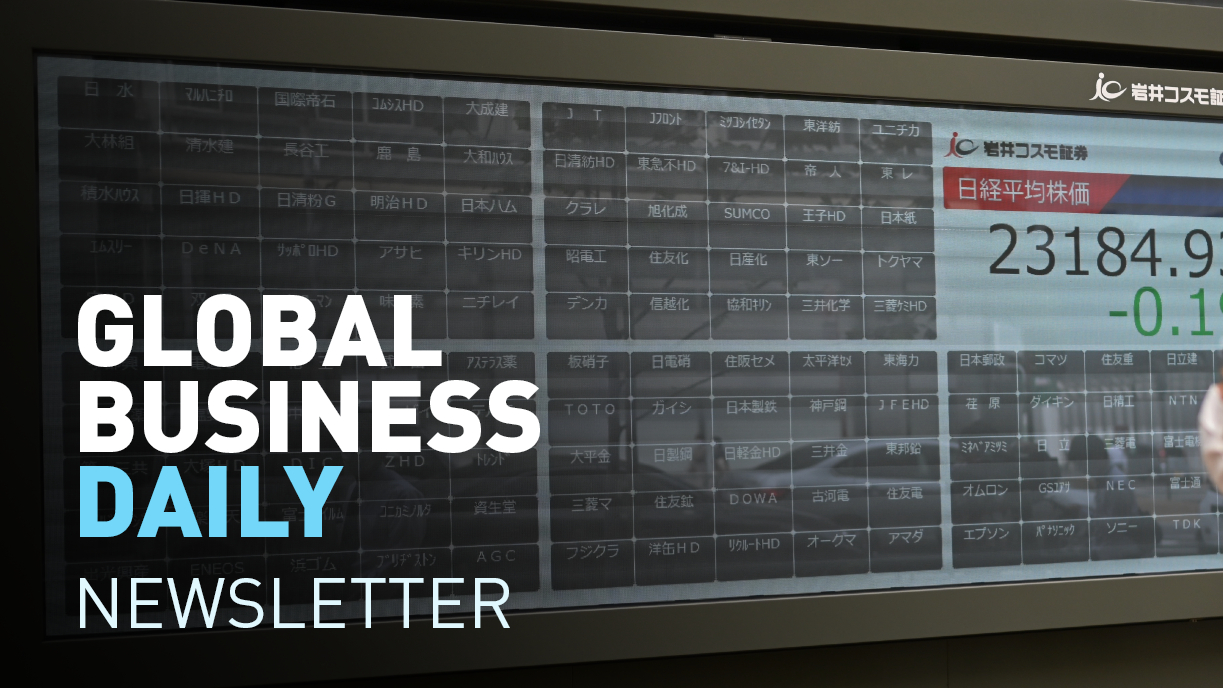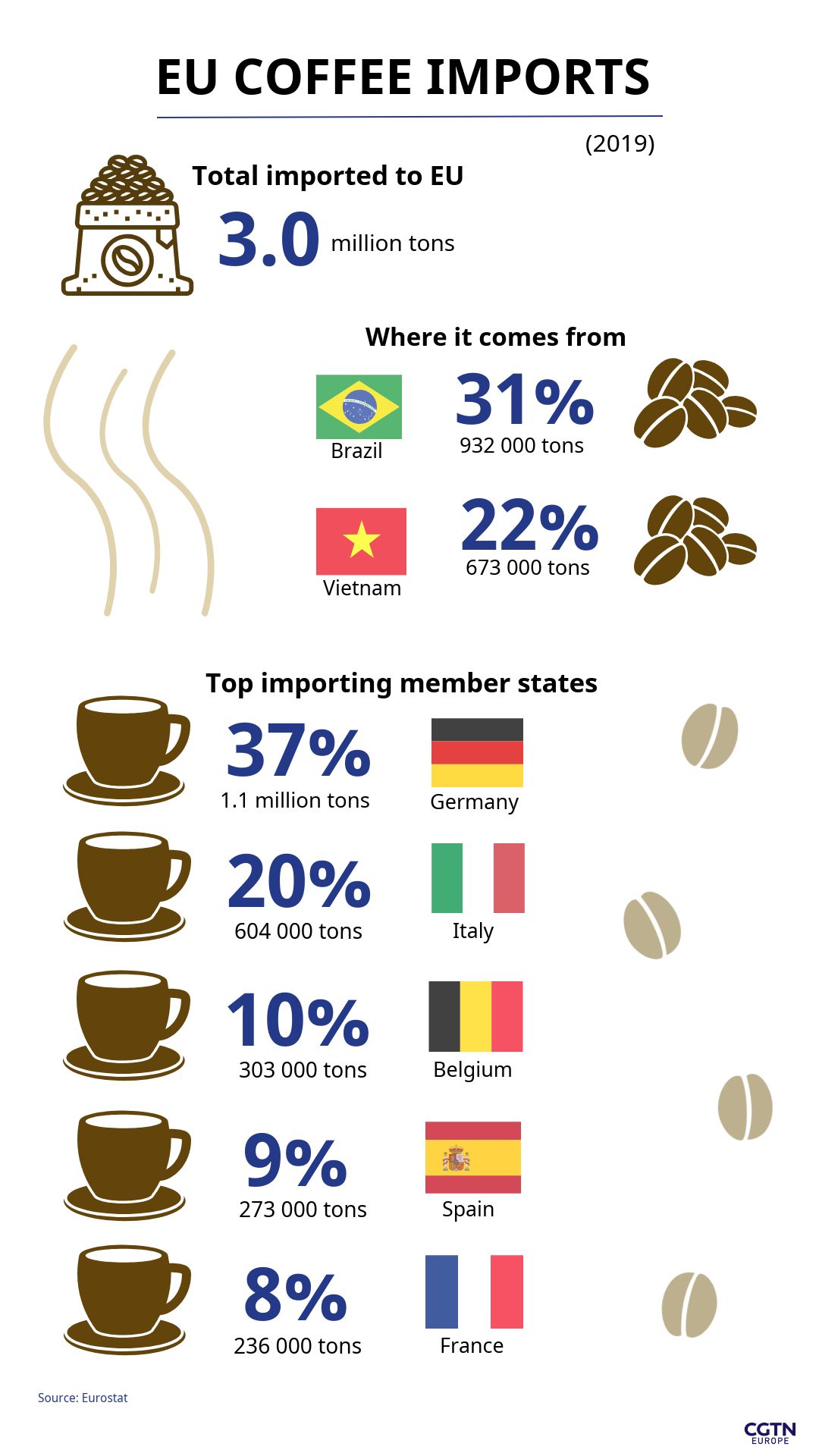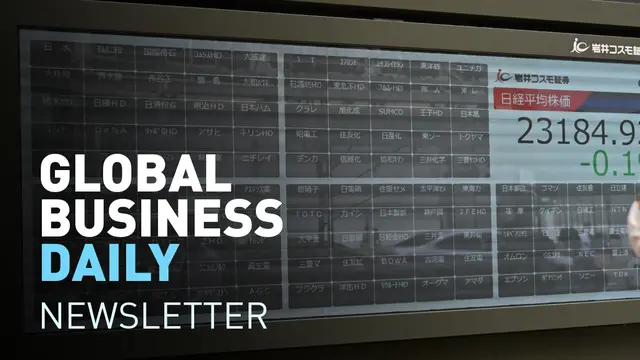"I think with goodwill on both sides, we can achieve resolution, and I certainly know that this government is determined to do so. But, of course, we have clear red lines that we will not cross."
That was Michael Gove, the UK minister handling Brexit divorce issues , who remained positive as he told parliament that progress is being made in several areas, in what is now becoming a torturous process for the country to leave the European Union.
But the EU doesn't seem to fully share this sentiment as it
today launched legal action
against the UK over its Internal Market Bill. European Commission President Ursula von der Leyen said the bill "by its very nature is a breach of the obligation of good faith laid down in the Withdrawal Agreement."
This looks like it may be yet another spanner in the works for the ongoing trade talks between the two powers, which have shown very little sign of progress.
It was also a day of bad news for the Tokyo Stock Exchange , which came to a complete standstill amid empty electronic boards, after a hardware glitch caused the worst-ever outage for the equity market. Japan's TSE has said it would reopen as usual on Friday, but frustrated investors were left unable to buy shares in Tokyo following an overnight rise on Wall Street.
Ending on a happier note, it's International Coffee Day – if you needed another excuse to go and enjoy that second (or third) cup of roasted goodness. And while you do that, scroll down to the end of the page to see our graphic on just how much coffee came into the EU last year and where it came from.
Enjoy reading,
Arij Limam
Digital correspondent
**P.S. Did someone forward this to you? Sign up **
here

The European Union has launched a legal case against the UK for breaching its binding Withdrawal Agreement with the bloc with its draft Internal Market Bill . If the UK does not back down, it could face hefty fines and the torturous Brexit process being thrown into disarray yet again.
Tokyo's Stock Exchange shut down on Thursday after a hardware glitch caused the world's third-largest stock market to suffer its worst outage ever . The market will aim to reopen on Friday, as Japan's top government spokesman called the situation "extremely regrettable," and said it must never be repeated.
Rolls-Royce plans to raise $6.5 billion , including $2.6 billion from shareholders, to rebuild its balance sheet as the COVID-19 travel crisis, compounded by a second surge of the virus, wreaks havoc on the British engine maker's cash flow .
The world's second biggest fashion retailer, HM , plans to close around 250 stores next year, representing five percent of its current network, as the coronavirus crisis drives more shoppers online. But the Swedish retailer said sales were recovering after reporting a smaller-than-expected drop in third-quarter profit . The retailer was also hit today with a $41 million fine by Germany for internal data security breaches at its customer service center in Nuremberg.
U.S. data-mining firm Palantir Technologies , which was born 17 years ago with the help of CIA seed money, has finally debuted on the **New York Stock Exchange ** – fetching a market value of nearly $22bn and gaining 31 percent in its first day of trading. The controversial and secretive firm has never turned a profit and is dogged by ethical objections and privacy concerns as it relies on public agencies for nearly half of its business.
Oil prices fell on Thursday as rising coronavirus cases dampened the demand outlook, with further price pressure from a rise in OPEC output last month. But prices received some respite from progress in U.S. talks on a stimulus package for the world's biggest economy.
Denmark has given the Russia-led Nord Stream 2 consortium permission to operate its Baltic Sea natural gas pipeline from Russia to Germany in Danish waters, the country's energy agency said on Thursday. Work on the project was halted in late 2019 due to U.S. sanctions and more recently the **German government **has been pressured to pull out of the project following the near-fatal poisoning of Russian dissident Alexei Navalny.
More than 7,500 finance jobs and $1.55 trillion in assets have already left Britain for the European Union as banks prepare for full-blown Brexit in January, consultancy firm EY has said.
Unemployment in Europe rose for a fifth consecutive month in August, reaching 8.1 percent in the eurozone, from 8.0 percent in July, as the pandemic hit the economy. The figures are expected to rise further amid concern that extensive government support programs won't be able to keep many businesses afloat forever.

CLICK:
THE IRONMAN-INSPIRED PARAMEDICS WHO COULD BE COMING TO YOU RESCUE
WATCH: Plants and fungi could provide answers to global warming, food security and effective medicines, according to a new report. The study by 210 experts in 42 countries claims plants and fungi are an untapped solution for many of the world's fundamental problems.
02:44

The first ever hydrogen-powered train ran on the UK mainline on 30 September as part of a major project in partnership with the University of Birmingham – signalling a big step towards the UK's net-zero carbon targets.
CGTN Europe spoke with Stuart Hillmansen, a senior lecturer in Electrical Energy Systems and head of the Traction Research Group at the University of Birmingham, about the future of the hydrogen economy.
Why has it taken so long for hydrogen power to get on track?
I think the timing is right, now, for a number of reasons. Firstly, the increasing efforts towards decarbonizing all of transport is also being felt by the rail industry. And, of course, the railway has been running electric trains for many, many decades and they run very successfully.
But the big problem is, you cannot electrify every single line of track because it becomes uneconomic, particularly for those routes in rural areas and less dense parts of the country.
So there is potential for deploying hydrogen in railways, but what about more widely?
Well, hydrogen is being seen as a solution to decarbonizing the whole energy sector. And what we might see in the future is actually a huge amount of hydrogen being produced in countries for things like heating buildings, providing energy to all sorts of different things. And I believe the railway is well-placed to capitalize on this new hydrogen economy that's going to emerge.
And what about the UK's part in this story? What role do you think the UK has in a global hydrogen-powered future?
Well, I like to think we've got a historic role because we invented the fuel cell in the UK and railways have got a long history here. And I think we are well-placed now to capitalize on that and develop the technology further, creating businesses in the UK that have got expertise in handling hydrogen, producing hydrogen and using hydrogen onboard vehicles.
It's International Coffee Day! Did you know that in 2019, the EU imported three million tons of coffee from abroad, 14 percent more than 10 years ago? These imports were worth a whopping $8.8 billion.

 简体中文
简体中文

